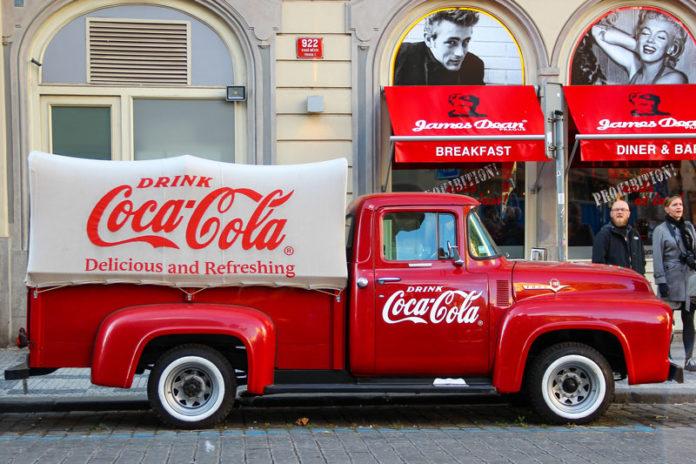
Two D.C. area ministers are claiming that, “we are losing more people to sweets than street,” as they file a lawsuit against the fizzy drinks giant Coca-Cola and the American Beverage Association, last week.
Pastor Delman Coates, one of the two African-American pastors that filed the lawsuit told the Washington Post, “It’s become really clear to me that we’re losing more people to the sweets than to the streets.”
“There’s a great deal of misinformation in our communities, and I think that’s largely a function of these deceptive marketing campaigns,” he added.
The two pastors argue that soda ads – Coke in particular- are a lot similar to cigarette advertisements that surrounded the media in the earlier days and promote a dangerous product and lifestyle.
“It sells joy and health and beautiful bodies and social engagement,” argued Pastor William Lamar of the Metropolitan AME Church, and Coates partner in the lawsuit.
“It is a matter of life and death in our communities. Marketing for Coca-Cola is focused around health and fun and showing very sexy bodies in their advertising. You never see an obese person. If the people are consuming Coca-Cola at this rate, there is no way those bodies would look like that. It’s almost as if they are selling joy. They are equating this product with the things that people are hoping for — joy, smiles, and family. But this product will not deliver that. It delivers the exact opposite. Silence around this issue is violence,” Pastor Lamar added.
The lawsuit claims that beverage industry is making use of marketing to “deceptively to switch the focus from sugar-sweetened beverages to inactivity as the key driver of obesity and related epidemics, including through their expenditure of hundreds of millions of dollars on research and programs that almost exclusively highlight exercise.”
In his interview with CBS News Coates stated. “The background of this lawsuit is that there’s an epidemic of diabetes, cardiovascular disease and a range of other degenerative diseases in the black and Latino communities, and really throughout America,” he explained. “For me, as a pastor, I see the toll it takes on families and children when they lose their parents much too soon. It breaks my heart and I’m saddened by the way in which we’re losing so many people.”
Maia Kats, a lawyer with the Center for Science in the Public Interest, further emphasize that the market schemes of such corporate giants such as paying bloggers to compare calorie counts in their product to the number of calories present in nuts are all “deceptive” tactics. “Their advertising campaigns do indicate that light exercise enables you to reward yourself with a Coca-Cola, but that’s deceptive,” stated Kats.
Coates argue that his fight against Coca Cola is something that runs much deeper. “As a person of African-American descent in this country and with a knowledge of the history, I’m deeply saddened by the way African-American slaves were used for the production of sugar and now African-Americans are dying because of sugar,” he stated.
The pastor were joined by the Praxis Project — a public health group– on filing their complaint against Coca Cola and the ABA.
“There’s a health crisis in the U.S., especially in our communities, and especially among children,” said Xavier Morales, the executive director of Praxis Project. “They target our communities with their marketing. We’re going into those communities trying to save lives, and they’re going out and erasing our message.”
Coca Cola denied all claims made against their and released a statement that read, “The allegations here are likewise legally and factually meritless, and we will vigorously defend against them.”
“The Coca-Cola Company understands that we have a role to play in helping people reduce their sugar consumption,” they added.
The American Beverage Association also wasn’t far behind to defend the industry’s conduct, as they stated “America’s beverage companies know we have an important role to play in addressing our nation’s health challenges. That’s why we’re engaging with health groups and community organizations to drive a reduction in the sugar and calories Americans get from beverages.”
And that, “unfounded accusations like these won’t do anything to address health concerns, but the actions we’re taking, particularly in areas where obesity rates are among the highest, can make a difference.”




























